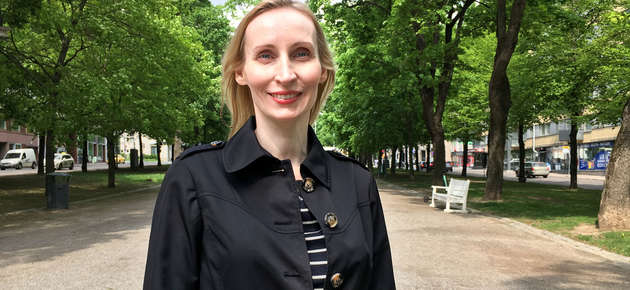Dissertation: Cooperation between universities and companies is a joint learning process


Doctor of Science Leena Kunttu has studied the methods and practices of research cooperation between Finnish universities and companies in her dissertation in the field of industrial management. The research focuses on joint learning and creation of new knowledge in university-company relationships. Kunttu has previously worked as Research and Innovation Manager in Nokia's mobile phone product development, and at that time participated in joint research projects with universities and exploiting their results in Nokia's mobile phones.
“The organisational cultures and practices of companies and universities are very different. Successful and effective cooperation is possible when both parties understand the drivers behind the activities of the counterparty. This works best when university researchers have experience from working in companies, and business representatives from universities. These types of people can provide a bridge between the university and the company. This will enable the development of a successful relationship,” says Kunttu.
Effective cooperation requires commitment from both parties
The key issue of the dissertation was to find out which practices of university-company cooperation promote joint learning and the creation of new knowledge. The study showed that the generation of long-term and effective relationships is enhanced by mutual commitment to the relationship, trust created at the individual level, and an understanding of the specific features of the other party's practices. The dissertation consists of case studies conducted on long-term cooperation relationships between Finnish technology companies and universities.
“In my research, I interviewed university and company representatives, and set out to find out what kind of relationship-level practices help to create and utilise new knowledge in cooperation relationships between companies and universities.”
Attitude to knowledge and significance for successful cooperation
Attitudes towards knowledge may create obstacles to effective cooperation. Universities strive to create open knowledge that is available to the public. For companies, new knowledge is a competitive advantage which is to be kept secret. The case studies showed that practices need to be developed in company-university relationships that help the partners overcome these obstacles. These practices may be related, for example, to the differing views of the parties on the publication of joint research results:
“In many cases, university and company representatives must find a compromise between the confidentiality of research results and publishing, which is important for universities. The research found effective practices to overcome this obstacle,” says Kunttu.
Involving students in research cooperation
The case studies showed that a cooperation relationship that originally started from a research perspective can be extended to education. The results indicated that educational cooperation significantly supports and broadens the cooperation and interaction between a company and a university. For example, companies have been involved in implementing university courses, and have brought their competence and practical experience to teaching. In turn, companies have gained new ideas and fresh insights to their own research challenges through the educational cooperation.
“Several interviews revealed that companies appreciate the role of students in joint research. Students who have worked in enterprise-based research projects have also often been recruited to the company after graduation. In this way, the new knowledge created in the project is easily transferred and integrated into the company,” says Kunttu.
Further information
Leena Kunttu, tel +358 40 6876032, e-mail: leena.kunttu(at)student.uwasa.fi
Kunttu, Leena (2019) Learning practices in long-term university-industry relationships. Acta Wasaensia 424. Artikkeliväitöskirja. Vaasan yliopisto. University of Vaasa
Publication pdf: http://urn.fi/URN:ISBN:978-952-476-868-9
Orders, printed publication: https://verkkokauppa.juvenes.fi/tuote/24756/
Details of the doctoral candidate
Leena Kunttu was born in 1973 in Ylistaro. She graduated from Ylistaro Upper Secondary School in 1992. She earned her Master of Science (Technology) degree in 2000 and completed her Doctor of Science (Technology) degree at Tampere University of Technology in 2006. Since 2015, Kunttu has been a grant researcher at the School of Technology and Innovations of the University of Vaasa.
Public Defence
The public examination of D.Sc. (Tech.) Leena Kunttu’s doctoral dissertation ”Learning practices in long-term university-industry relationships” will be held on Tuesday 11 June 2019 at noon in auditorium Nissi (Tritonia), University of Vaasa. The field of dissertation is Industrial Management. The defence will be held in Finnish.
Dean, Docent, D.Sc. (Tech.) Antti Lönnqvist (University of Tampere) will act as an opponent and professor Josu Takala as a custos.